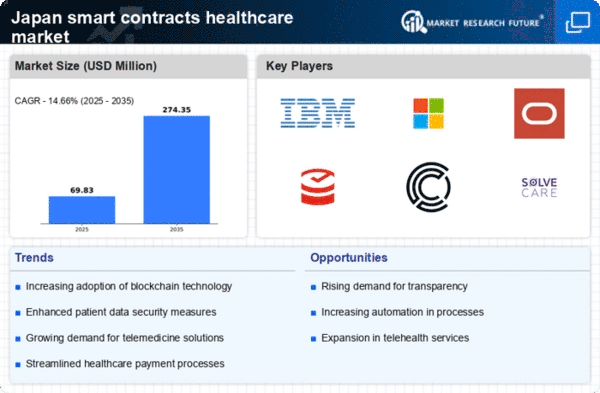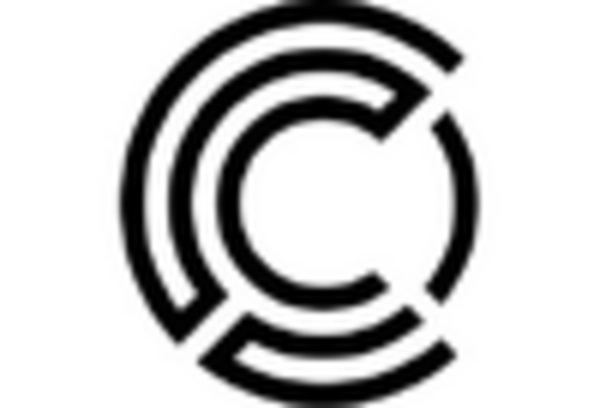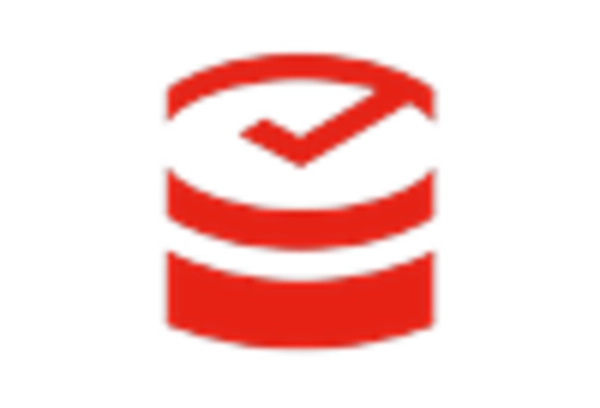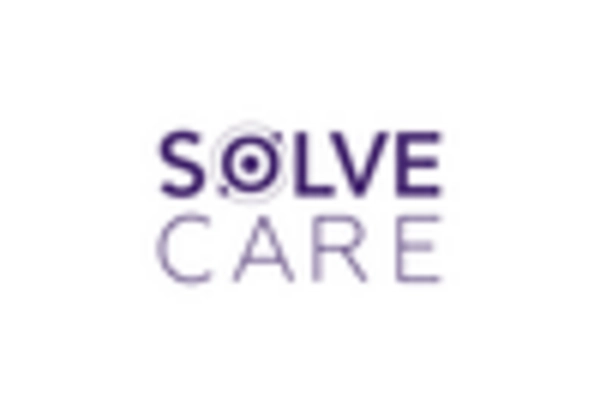Cost Reduction Initiatives
In the context of Japan's healthcare system, the smart contracts-healthcare market is set to grow due to ongoing cost reduction initiatives.. Healthcare providers are under pressure to minimize operational costs while maintaining high-quality care. Smart contracts can streamline administrative processes, reduce paperwork, and automate billing, which may lead to significant savings. Reports indicate that implementing blockchain solutions could reduce administrative costs by up to 30% in some healthcare settings. This potential for cost efficiency is attracting interest from healthcare organizations looking to optimize their operations. As the market evolves, the integration of smart contracts is likely to play a crucial role in achieving these cost reduction goals, thereby enhancing the overall sustainability of healthcare services in Japan.
Enhanced Security Measures
Security concerns remain a critical issue in the healthcare sector, particularly regarding patient data protection. the smart contracts-healthcare market benefits from a growing emphasis on enhanced security measures.. Smart contracts, built on blockchain technology, provide robust security features that protect sensitive information from unauthorized access and cyber threats. In Japan, where data breaches can have severe repercussions, the adoption of smart contracts is seen as a proactive approach to safeguarding patient data. Current estimates suggest that the implementation of blockchain solutions could reduce the risk of data breaches by as much as 50%. This heightened focus on security is likely to drive the growth of the smart contracts-healthcare market, as stakeholders prioritize the protection of patient information.
Integration with IoT Devices
the integration of Internet of Things (IoT) devices with smart contracts is a significant driver for the healthcare market in Japan.. As healthcare providers increasingly adopt IoT technologies for patient monitoring and data collection, the need for efficient data management becomes paramount. Smart contracts can facilitate seamless interactions between IoT devices and healthcare systems, ensuring that data is accurately recorded and processed in real-time. This integration not only enhances operational efficiency but also improves patient outcomes by enabling timely interventions. Market analysts project that the convergence of IoT and smart contracts could lead to a 25% increase in the efficiency of healthcare delivery systems. Consequently, this trend is likely to bolster the smart contracts-healthcare market as organizations seek to leverage technology for improved patient care.
Rising Demand for Transparency
The smart contracts-healthcare market in Japan is experiencing a notable increase in demand for transparency in healthcare transactions. Patients and providers alike are seeking assurance that their data is handled securely and ethically. This demand is driven by a growing awareness of data privacy issues and the need for accountability in healthcare services. As a result, smart contracts, which offer immutable records and automated compliance, are becoming essential tools for ensuring transparency. According to recent studies, approximately 70% of healthcare stakeholders in Japan express a preference for systems that utilize blockchain technology to enhance transparency. This trend is likely to propel the adoption of smart contracts in the healthcare sector, as organizations strive to meet the expectations of informed patients and regulatory bodies.
Growing Interest in Decentralized Solutions
There is a growing interest in decentralized solutions within the healthcare sector in Japan, which is positively impacting the smart contracts-healthcare market. Decentralization offers numerous advantages, including increased control over personal health data and reduced reliance on centralized authorities. Patients are becoming more empowered to manage their health information, and smart contracts facilitate this by enabling secure, peer-to-peer transactions without intermediaries. This shift towards decentralization is reflected in the rising number of healthcare startups exploring blockchain applications. Recent surveys indicate that over 60% of healthcare professionals in Japan believe that decentralized solutions will play a crucial role in the future of healthcare. As this trend continues, the smart contracts-healthcare market is expected to grow, driven by demand for innovative, patient-centric solutions..
















